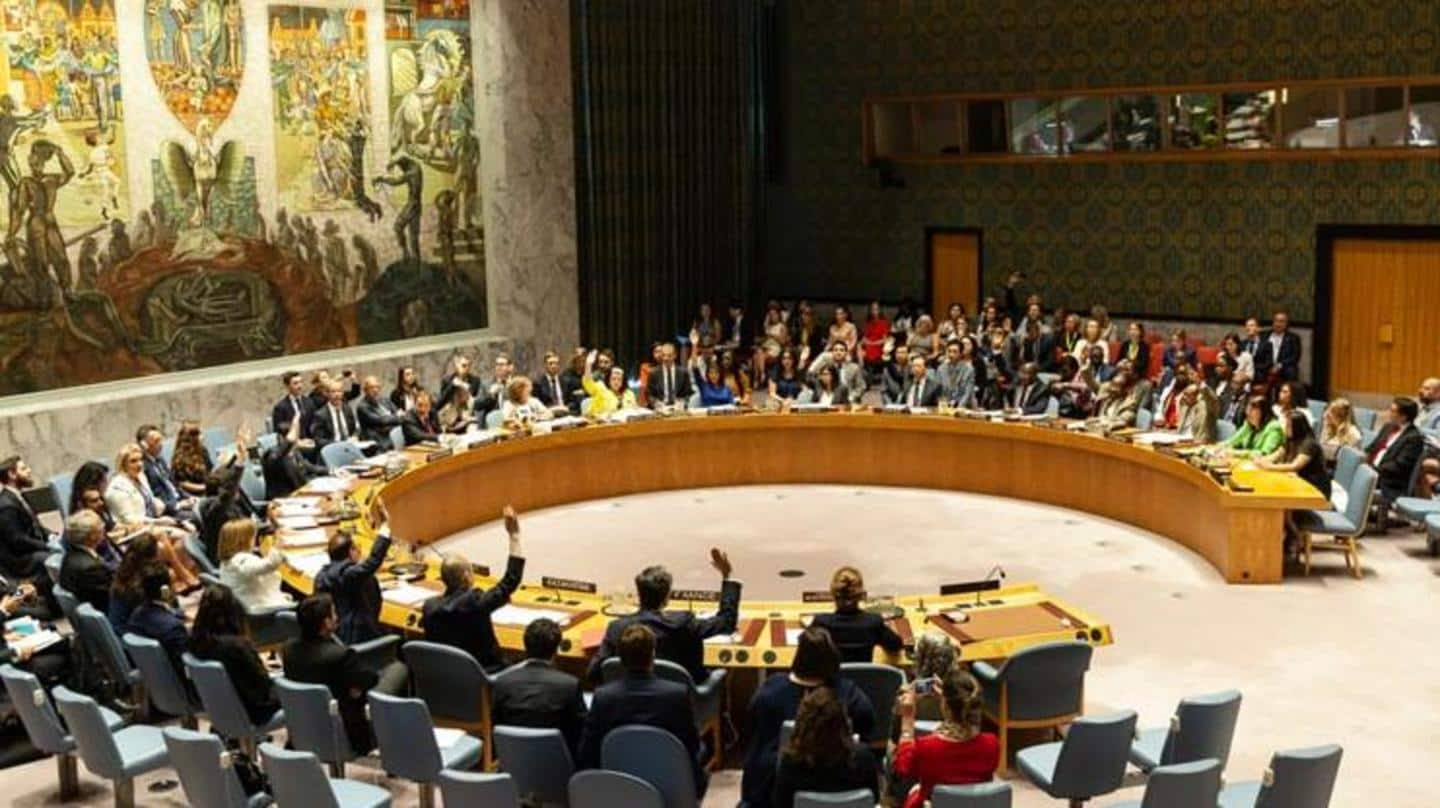
India elected to non-permanent seat of UN Security Council, unopposed
What's the story
On Wednesday, India was elected to the non-permanent seat of the United Nations Security Council, after getting 184 votes in the 193-member strong General Assembly.
The term will last for two years. India was the sole candidate for the seat from the Asia-Pacific category for the 2021-22 term.
Besides India, Ireland, Mexico, and Norway also became non-permanent members of the UNSC.
Details
India was elected several times in the past as well
This is not the first time India has been elected to the powerful council. It remained a non-permanent member of UNSC in 1950-1951, 1967-1968, 1972-1973, 1977-1978, 1984-1985, 1991-1992, and between 2011 and 2012 too.
In June last year, the 55-member Asia-Pacific grouping unanimously proposed New Delhi's name.
China and Pakistan, both countries with which India has sour ties, supported the candidature.
Voting
UN headquarters was shut in March 15 due to coronavirus
Three elections were held at the UN headquarters in New York. The office was shut on March 15, in wake of coronavirus pandemic.
Several meetings and virtual conferences were held to decide how to go about voting as the council was apprehensive about holding it the traditional way at the main hall.
India suggested against changing the polls' venue, to respect the sanctity.
What happened
Officials engaged with countries individually to help India win
India's Ambassador to the UN, TS Tirumurti, had earlier expressed confidence that New Delhi will sail through easily in the elections.
Reportedly, his predecessor Syed Akbaruddin and Tirumurti spoke with all counties individually. Similarly, Deputy Permanent Representative of India to the UN, Nagaraj Naidu, spoke to his counterparts.
"Prime Minister has made a clarion call for reformed multilateralism," Tirumurti said earlier.
What he said
Tirumurti opined developing countries need greater representation
He added that developing nations have started playing a major role in the UN, and beyond, but unfortunately their voices haven't gained much attention in multilateral bodies.
"Consequently, there is a need to go beyond 1940s multilateral architecture and provide for greater representation, starting with the UN Security Council. In other words, the multilateral architecture needs to get contemporary and reflect reality," he said.
Canada
Separately, Canada lost the elections for a second time
Meanwhile, Canada lost the closely-watched elections to Ireland and Norway. This development reflects poorly on Prime Minister Justin Trudeau and Foreign Affairs Minister François-Philippe who have been reaching out to different countries to secure one of the two available rotating seats.
In 2010, the former conservative government also failed to secure a seat by getting 114 votes.
This time, Canada got just 108.
Trudeau's stakes
Trudeau spearheaded Canada's campaign
Trudeau had personally looked through the country's campaign to get a seat at UNSC. The elections turned fiercely competitive when Ireland took UN ambassadors to a U2 concert, and Canada took them to a Celine Dion's.
In a statement after the loss, Trudeau congratulated Ireland and Norway, adding that his country would continue to pursue this approach at the world stage.
Opinions
Experts believe Trudeau wasn't "enough" to get Canada a seat
Giving his opinion on the loss, Bessma Momani, professor of international relations at the University of Waterloo, said, "Trudeau may be the amicable poster child of multilateralism and diversity ... but at the end of the day, that's not enough."
Francois-Philippe Champagne didn't shed light on why Canada lost but said there are lessons to be learned from this episode.
Twitter Post
PM Modi overwhelmed by support
Deeply grateful for the overwhelming support shown by the global community for India's membership of the @UN Security Council. India will work with all member countries to promote global peace, security, resilience and equity.
— Narendra Modi (@narendramodi) June 18, 2020